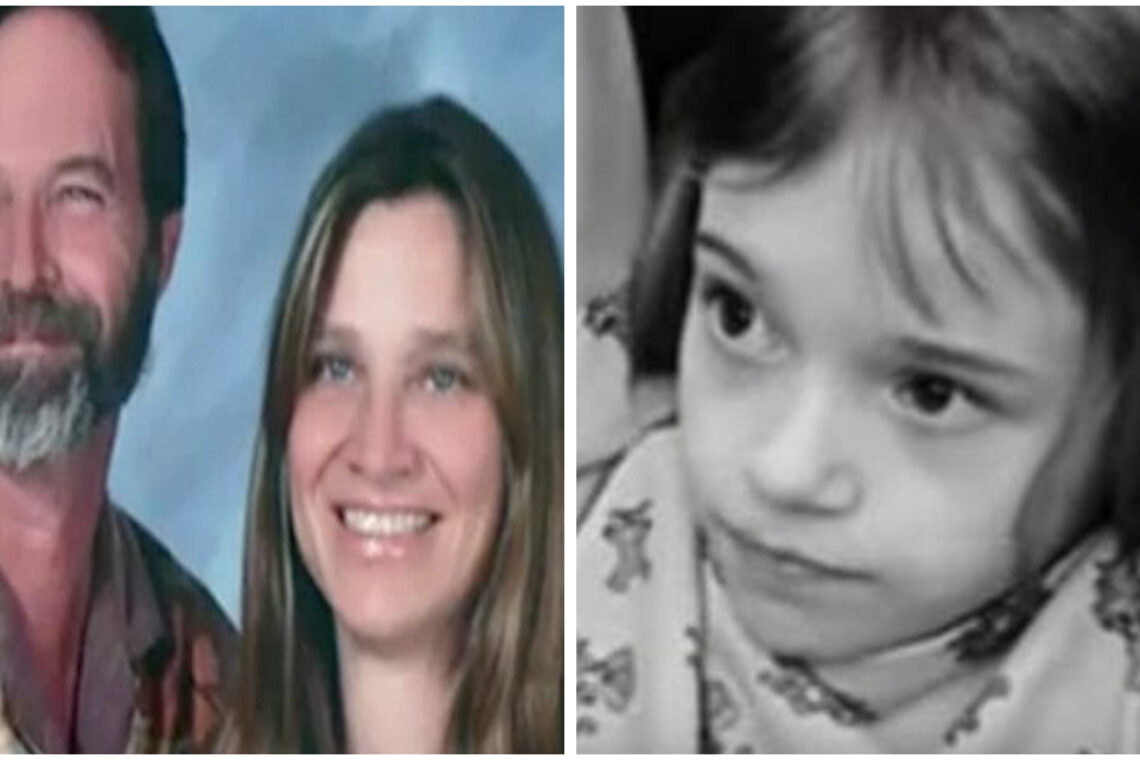
Bernie and Diane Lierow always envisioned a larger family filled with love and support. With five sons who eventually grew up and left home, they found themselves with a desire to share their parental affection with a child who needed a family. After much contemplation, the couple decided to adopt a daughter, feeling that their hearts had room for another child.
As they began this new journey, they connected with a local adoption agency and eagerly participated in an event designed to introduce potential adoptive parents to children in need. Among the many faces of children seeking families, Diane was particularly drawn to a black-and-white photograph of a girl who could not attend the event. The image captured her attention in a profound way, stirring feelings of empathy and connection that she couldn’t ignore.
Diane’s fascination led her to inquire about the girl in the photo, but the response from the adoption agency was discouraging. The caseworkers expressed reservations and urged the couple to reconsider, stating, “You definitely don’t want her.” This warning only fueled Diane’s determination, as she could not shake off the feeling that this girl was meant to be part of their family.
The couple pressed on, seeking out the girl’s social worker to learn more. What they discovered was heart-wrenching. The girl, known to many as Danielle, had endured unimaginable hardship and neglect. Her story would unveil a tragic narrative that would change the Lierows’ lives forever.
In 2005, a concerned neighbor had alerted the authorities to the troubling conditions in Danielle’s home. She had spotted a frail, unfamiliar face peering out from a window and felt compelled to act. When law enforcement officers arrived, what they found was beyond comprehension. Investigator Mark Holste described the scene as one of the most shocking cases of neglect he had ever encountered. The atmosphere was thick with filth; the very ground seemed to crackle with cockroaches.
Danielle, then just six years old, was discovered in a desolate corner of the house, lying on a soiled mattress in a room no larger than a closet, surrounded by dirty diapers. She had been neglected to the point of becoming feral, suffering from severe malnutrition and a host of physical ailments. When found, Danielle weighed only 46 pounds and was infested with lice and fleas.
Her mother offered the feeble justification, “I’m doing the best I can,” to which Holste retorted, “The best you can sucks!” It was a stark admission of the failure to provide for a child who had been deprived of basic care and human interaction. A psychologist later assessed Danielle and found that she had the mental development of an infant. Deprived of affection and communication, she had essentially withdrawn into herself, unable to learn how to engage with the world around her.
The situation led to the immediate revocation of her mother’s parental rights, and Danielle spent six months in a hospital recovering from her harrowing experience. When the Lierows learned the details of her past, they were devastated but felt an undeniable pull toward her. Diane recounted the emotional toll it took on her to read about Danielle’s suffering, yet in her heart, she sensed that this little girl was destined to be their daughter.
When Danielle finally moved in with Bernie and Diane, the transition was anything but smooth. The couple faced numerous challenges as they attempted to help her acclimate to her new environment. Danielle struggled with basic skills; her ability to use utensils was non-existent, and she exhibited intense fear of the outdoors. Her emotional outbursts were frequent and overwhelming, and she often had meltdowns multiple times a day.
Food was a particularly sensitive subject for Danielle. Having spent the early years of her life in a state of deprivation, she exhibited disordered eating behaviors, consuming food until she was unwell. Despite these hurdles, the Lierows poured their love and patience into helping her adjust, determined to provide the nurturing environment that had been absent from her early life.
With time, Danielle began to make remarkable strides in her development. Achievements that many might take for granted—like brushing her teeth or using the bathroom independently—became monumental milestones for her. The encouragement and support from her new family fostered a sense of safety and stability, enabling her to grow in ways the specialists had thought unlikely.
Diane expressed her pride in Danielle’s progress, highlighting how she had surpassed the expectations set for her when she was first found. Bernie echoed this sentiment, emphasizing that even small accomplishments were significant victories in Danielle’s journey. Communication remained a challenge, but moments of connection—like greeting Bernie with “Hey Dad” or expressing love for her parents—signified substantial progress.
Though Danielle’s path to socialization and trust, particularly around women, remained a work in progress, her family held onto hope for her future. They recognized the importance of integrating her into the community and the potential for her to thrive in a supportive environment.
The story of Bernie and Diane Lierow and their adopted daughter, Danielle, is a testament to the resilience of love and the power of family. Despite the initial warnings and the daunting challenges they faced, the Lierows’ unwavering dedication to Danielle has paved the way for a brighter future. Their journey exemplifies how compassion and determination can lead to healing and transformation, proving that love truly knows no bounds.